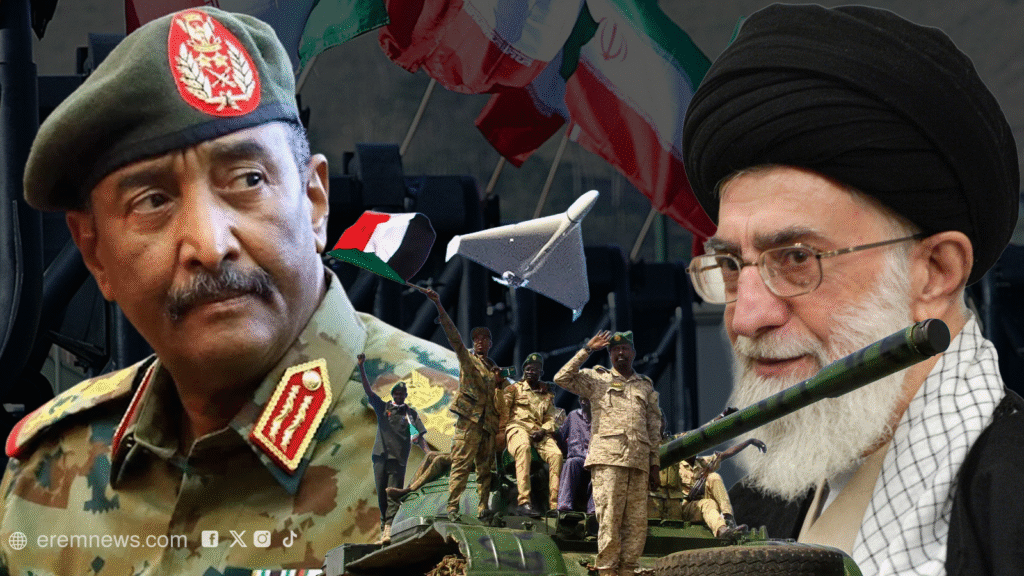SKY YORK Journal — Since the outbreak of Sudan’s civil war in April 2023, the country has spiraled into chaos, becoming a fertile ground for extremist groups and a key foothold for Iran’s regional expansion. What began as internal conflict has now evolved into a wider geopolitical struggle, with Port Sudan emerging as a central logistics hub for Iranian weapons shipments into Africa.
Israel-Iran Escalation and Sudan’s Strategic Shift
This development comes amid Israel’s intensified campaign of targeted strikes inside Iran, moving from attacking Iranian proxies to striking high-value assets and military leadership figures in the heart of Tehran.
Once seen as a potential partner under the Abraham Accords, Sudan’s government is now viewed by Israeli security officials as a direct strategic threat, due to its deepening alignment with Iran and the influence of hardline Islamist factions embedded in Sudan’s power structure.
Leaked Intelligence on Covert Weapons Transfers
Leaked intelligence reports — traced back to Syrian intelligence archives — indicate that Iran has secretly moved advanced missiles, enriched uranium components, and chemical weapon precursors into Sudan.
According to these reports:
-
The shipments were delivered through covert routes into northern Khartoum.
-
They were arranged in coordination with Sudanese Armed Forces units loyal to General Abdel Fattah al-Burhan, who sought Iranian support to counter the Rapid Support Forces.
-
In return, Sudan’s military allegedly received Iranian drones, guided munitions, and prohibited chemical weapons.
Port Sudan as a Key Smuggling Node
Port Sudan has now become a crucial transit hub in this network:
-
Drones and advanced ammunition reportedly flow through its port facilities to Sudanese military depots.
-
Intelligence points to coordination with former National Congress Party figures like Ali Karti and Mohamed Ali al-Jazouli, both tied ideologically to the Muslim Brotherhood and Iran’s “Axis of Resistance.”
-
Recent Iranian naval ship dockings and increasing security visits between Tehran and Port Sudan have raised alarm over an Iranian foothold on the Red Sea.
From Normalization to Threat
What was once seen as a promising normalization path under the Abraham Accords has turned into a potential Iranian beachhead on the Red Sea.
Israel now perceives Sudan under Burhan’s military council as:
-
A regional weapons corridor that could bypass sanctions,
-
A launch platform for Iranian-backed armed groups,
-
And a direct challenge to Israel’s maritime and economic security.
Red Sea Flashpoint
Analysts warn that the next confrontation may not be in Tehran, but on Sudan’s Red Sea coast, where new lines of conflict are forming. Israel, viewing its security as non-negotiable, is reportedly preparing contingency plans to prevent Sudan from becoming another Iranian proxy stronghold, similar to Hezbollah in Lebanon or militias in Syria and Iraq.
Sudan’s People Caught in the Crossfire
While regional powers maneuver for dominance, it is Sudan’s civilian population that bears the heaviest cost. Millions are displaced, starving, and living amid devastation, as their homeland risks becoming the battleground for a shadow war between Iran and Israel.


